Note: Download the English version PDF here.
Mohammad Ahmady and Esmat Altaf
Translated by Mohammad Sakhi Rezaie
Silk Way Weekly: Ms. Elaha Soroor, in this issue of the Silk Way weekly, is going to dwell on the Afghan women’s movements and collect discussions and materials about the continuous activities and tireless struggles of Afghan women and girls; Women and girls who have not sat silent for three years under the rule of dark-minded people and terrorists and have not stopped fighting for their human rights and human demands.
We are glad that you provided the context for this conversation. Until now, most of what we have heard from the you, Elaha have been folkloric songs; Beautifully performed songs and innovations can be seen in your works. We want to know, where does this interest and attachment come from and what is the reason for this attachment?
Elaha Soroor: Folk music connects me to my childhood and the life of my parents. It helps me get to know them better and finally get to know myself and it gives me self-confidence. Artists are historians of their era and time. A society that does not have history, art and stories are vulnerable and can be removed as if they never existed. Today, when music is considered haram in Afghanistan, I consider it my duty to leave the stories that I have learned and which form a part of my identity to the next generation.
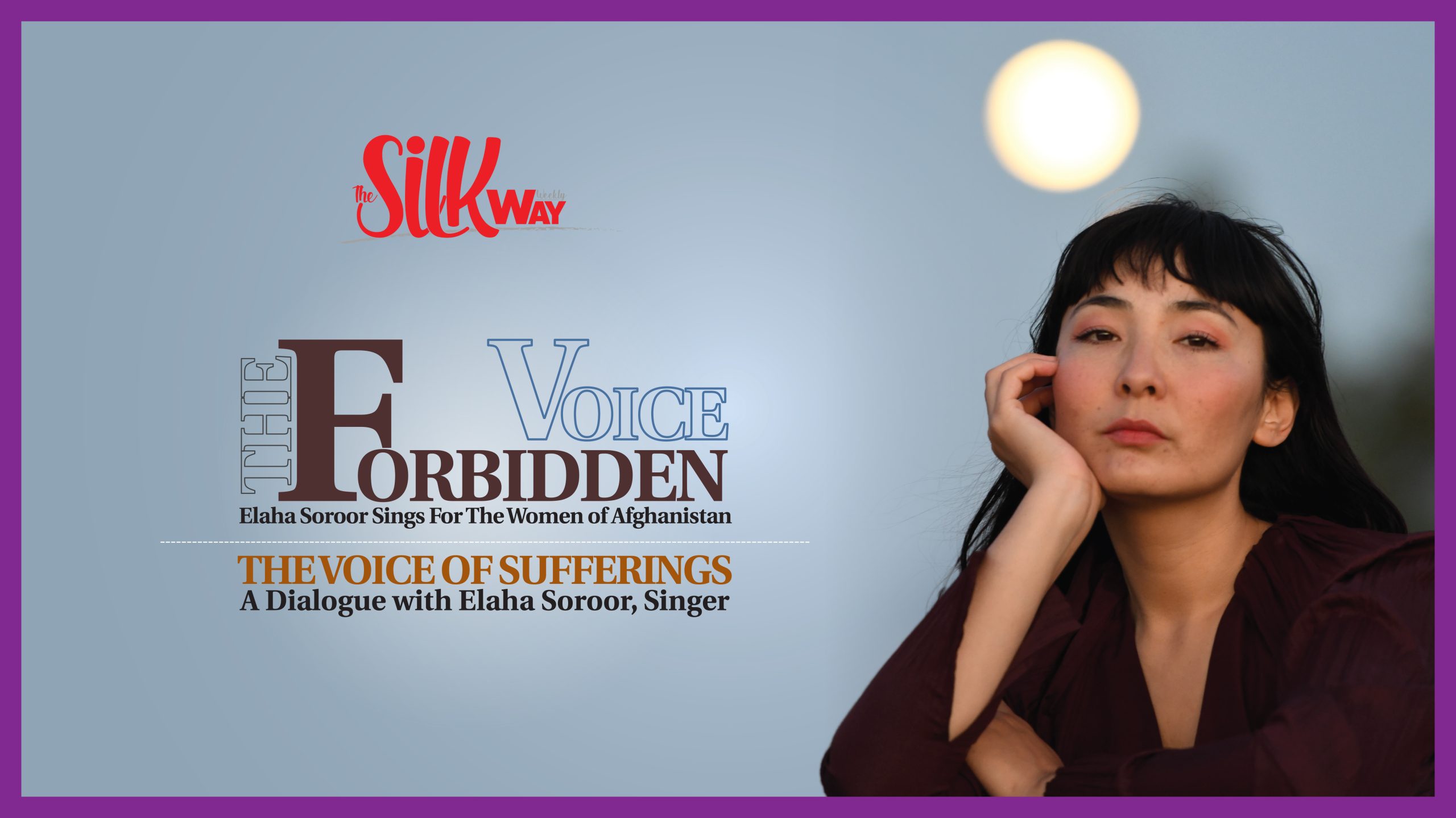 Silk Way Weekly: The album ” our Mothers’ Songs” is also folkloric. Talk a little about this album. How did you get the idea to perform the songs of Afghan mothers?
Silk Way Weekly: The album ” our Mothers’ Songs” is also folkloric. Talk a little about this album. How did you get the idea to perform the songs of Afghan mothers?
Elaha Soroor: When I had just migrated, I felt deeply confused. During this time, our mothers’ songs gave me encouragement and comfort; The songs that brought me closer to my family and to Afghanistan. In the heart of these songs, you can recognize the thoughts of my mother’s generation. The life of the mother has a great influence on the formation of the character and identity of the future human being, and in order to find ourselves, we must be aware of the past, our mother and our roots. Among the other reasons for addressing these songs was to introduce the cultural face of Afghanistan to my host country, England; A face that has rarely been seen in international scenes. This album was like an exercise book for collaborating with different styles and ideas. Also, providing a bridge of communication for the immigrants who were born outside of Afghanistan to maintain their connection with Afghanistan through these songs.
Silk Way Weekly: As far as we have listened to your songs, you also manipulate and modernize folk songs. What do you think about singing songs?
Elaha Soroor: I believe that an artist must be a good listener in order to grow and evolve. They shall have the ability to hear the voices of others and understand the artistic thoughts of others. Recreating or translating folklore works is an exercise in becoming a good listener. Folkloric works have always been passed down from one generation to another through this process and have continued to exist.
Silk Way Weekly: ” Our mothers’ songs- Album ” includes how many songs? Where and how were these songs collected?
Elaha Soroor: Understanding folk music, like a university, has helped me find my own unique voice. It allowed me to have a deeper understanding of art. The album “Our Mothers’ songs” contains nine songs. In childhood and adolescence, in the carpet weaving workshop or women’s circles, we used to perform these songs by playing the Tambourine” or only vocally. Sometimes, we would lend each other tapes and cassettes, which were very rare, so that we could listen to carpet weaving. This album is like turning the pages of a diary that is connected with bitter and sweet moments. I collaborate with different musicians in England; including Kefaye group which we met in 2016 and collaborated in the production of this album.
Silk Way Weekly: For many audience, the lyrics of a song are its essential and important element. That is, they don’t just enjoy the melody. They consider poetry or song to be the basic pillar of musical art and enjoy strong and artistic poetry along with melody. We would like to ask, how passionate you are in choosing the songs and poems you sing? We mean, how important is the literary and power of poetry to you and how do you choose these?
Elaha Soroor: Undoubtedly, it is also important for me to introduce the art to the audience. I always read the news and works of Persian and English poets and writers to broaden my view and perception of the world. I like to have a close friendly relationship with my fellow poets and artists in order to gain more access to their world of thoughts. I believe that there should be music for every mood. Poetry can be simple and in the language of street and market; but to convey deep concepts. Of course, it is the duty of the artist to introduce new ideas and styles; But complex forms of poetry and complex words do not always mean better. There should be enough artwork in different styles for the audience to choose from; It means art that can express the mood of their moments.
Silk Way Weekly: Lack of attention to poems and lyrics sometimes makes the rhythm of the song incompatible with the content of the lyrics. We have seen many times in the work of our young artists that the content of the poem was sad; But the rhythm of the music, happy. Or vice versa. This incident makes the parts of the song not match and does not have a single effect on the singer. This point can also be considered a disadvantage. What do you think about this?
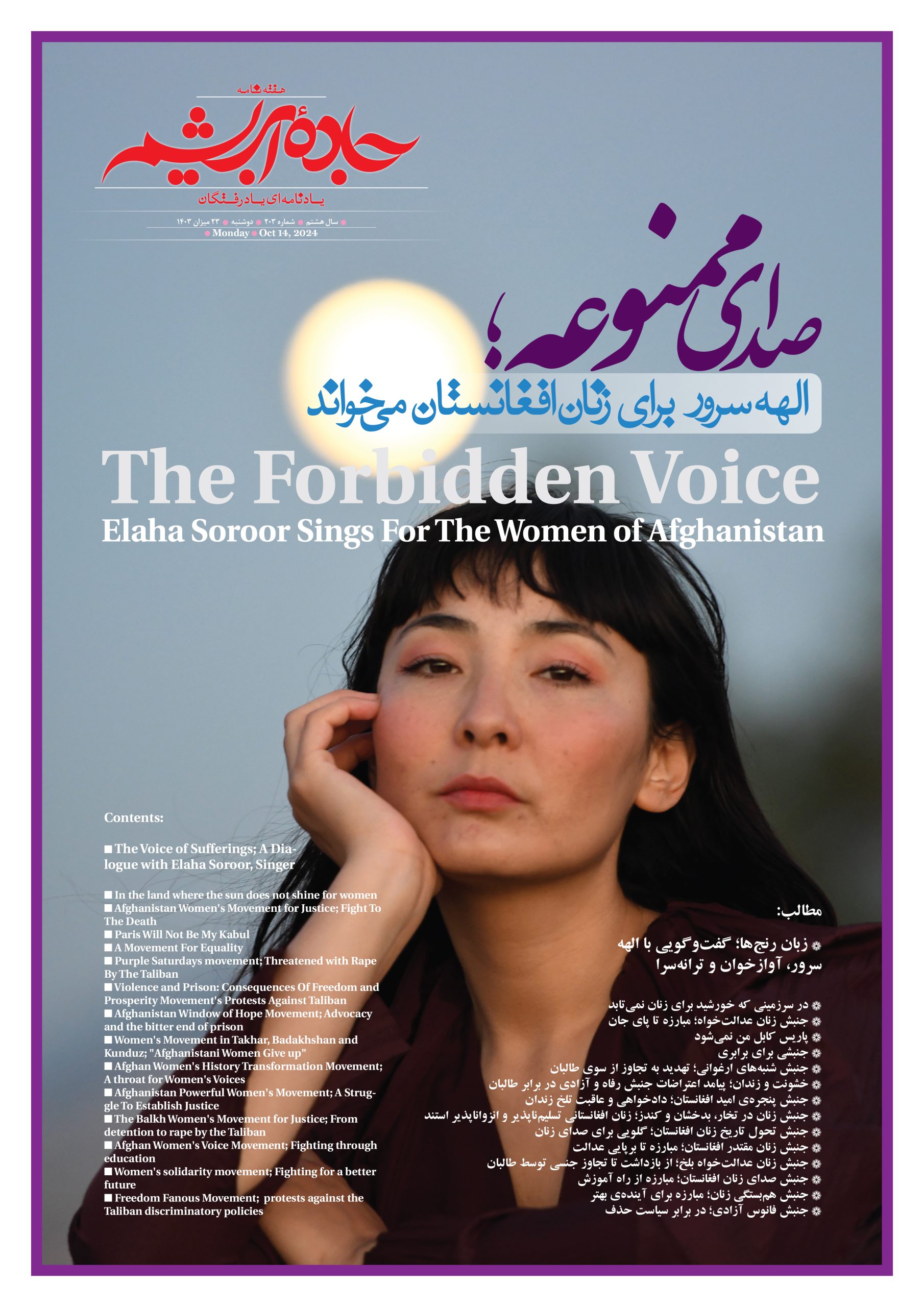 Elaha Soroor: I am not a fan of idealism. Everyone should be allowed to create art in their own way. Creating perfect, universal and excellent art is not an easy task; This process requires repetition, practice and sometimes mistakes. Of course, nothing is perfect; Therefore, it is up to the audience to determine what they enjoy and what art they connect with.
Elaha Soroor: I am not a fan of idealism. Everyone should be allowed to create art in their own way. Creating perfect, universal and excellent art is not an easy task; This process requires repetition, practice and sometimes mistakes. Of course, nothing is perfect; Therefore, it is up to the audience to determine what they enjoy and what art they connect with.
Silk Way Weekly: As we mentioned earlier, you have mostly gone for Hazaras folk songs. One of the problems that Hazaras folkloric couplets have is the pronunciation of their words; Because Hazara people speak different dialects. These dialects are so diverse that the dialect is different from one village to another, or from one district to another. You did not face this problem in the album ” Our Mothers’ Songs”?
Elaha Soroor: I have always been criticized for my accent. When I was younger, I sometimes tried to change myself for others; But this attempt was incorrect and misplaced. People always have their opinion. If they don’t want to, they won’t change. Therefore, being ourselves is much more meaningful and impactful. I performed the album ” Our Mothers’ Songs” with an accent that I was familiar with and grew up with. There is no such thing as a completely “pure” dialect or language. Language is a means of communication and it changes and becomes richer in relation to time and place. As a Hazara who was born in Iran, went to Afghanistan and later lived in India, Europe and England, my accent carries a part of my identity and my life history and is a reflection of all the experiences I have had in these places.
Silk Way Weekly: One of the couplets performed in the album ” Our Mothers’ Songs” was a song attributed to Abe Mirza, a well-known native singer of Malistan, Ghazni province; But your performance is different from Aghi Delaram’s performance. From the composition to the musical instruments used in this performance. Could you tell our audience more about these changes and innovations?
Elaha Soroor: Yes, I agree. I can never be Aghi Delaram; Because I have my own unique experiences; But I can hear her song and identify with her inner feeling in my daily life. I want to see my loneliness in Abe Mirza’s voice when she sings about displacement and loneliness.
Silk Way Weekly: One of your changes and innovations is that Abe Mirza sings with Ghichak and Dambore; But you didn’t. The drum is the most important instrument of Hazara people. A couplet is also the most important musical word of the Hazara people. Is it possible to sing Hazaregi couplets without tamborah, ghichak and flute?
Elaha Soroor: Yes, Damborah is one of the important symbols of Hazara culture. Hazara is not a culture, it is a race. Being a Hazara is much more than a Dambora and ghichak. In this race, each person can have their own unique religion and even culture. Before I present the music to the audience, I compose and sing for my own pleasure and then I share my pleasure with others. I am interested in cooperation and mutual thinking; Because group work is much more effective than individual movement. Music is the common language of human emotions and helps us to know each other better. The better we know about different cultures and ways of thinking, the more prepared we will be for empathy and mutual understanding. If we talk about the suffering and what is happening to us, there is a way to reduce that suffering.
Silk Way Weekly: Hazaras for two reasons; One is the horrible historical genocide and massacre, and the other is faith, religion and tradition that are cumbersome and against instruments and hymns, and songs, made them silent and remain silent; Because the possibility of raising their voice, whether in the form of literary works or in the form of musical works and other artistic aspects, has been less available; Because in this society, there was no field to cultivate artistic minds, hands and larynxes. Restrictions, on both sides, have been and still are severe. This silence caused no one to recognize these people, to understand and feel their pain, and to be aware of their human experiences and bitter history. People who are oppressed; The first thing that matters to them is their survival. They try to guarantee their lives. When their lives are guaranteed, then they move on to other things; Then they may like literature, art, music and other branches of art. Our question is, in your opinion, the performance of Hazara music and songs that are closely related to the bitter and sad fate of these people, what effect do they have on the knowledge of these people and how much can it pull them out of artistic isolation and biological isolation?
Elaha Soroor: If we don’t have the language to express our suffering, it’s as if everything is fine and nothing happened, and as a result, we get locked in the lonely prison of the mind. Sometimes expressing suffering can be difficult; But it helps to remove the heavy burden from our loneliness and free the inner energy and find solutions to solve our problems and knots collectively. When we express our feelings, we realize that we are not alone and that is when we are no longer afraid of being judged.
Silk Way Weekly: As we mentioned, the tamboura is the most important instrument of Hazara people, and dotar, ghichak, ney, etc. are other instruments that Hazara singers use. Our question is, when we sing the Hazara couplets with other musical instruments, with innovations in style, can we still consider the result to be Hazara music?
Elaha Soroor: An art that cannot break the frameworks and display itself in different forms, if it cannot create questions, it is no longer art. The real artist does not fit in the rules and frameworks and must be free to create valuable and multidimensional art.
Silk Way Weekly: With the album “Revival of the Roots” you once again went to the couplets and folk songs of Hazara people; From Abe Mirza to Sarwar Sarkhosh. What do you believe about these roots that you can’t ignore easily and you still perform them with your catchy voice?
Elaha Soroor: In the album “Revival of the Roots”, I took help from the book of folk couplets of Hazara by Mohammad Javad Khavari, and it has been my best guide for learning the Hazara dialect of my mother, who lives in Kabul. Shaukat Ali Sabour, Dawood Sarkhosh and Sayed Anwar Azad are living role models of Hazara artists whose works I always listen to.
Silk Way Weekly: Although we did not read a specialized review by experts in the art of music about your Hazaragi pronunciation; But some non-expert criticism was that you have not been able to pronounce Hazaragi words with Hazaragi accent. Another user wrote that “Dido and Bolbi” are different. What you read as ‘Dido’ is ‘Bolbi’. These two genres of music may have a lot in common; But they definitely have differences. What are your findings?
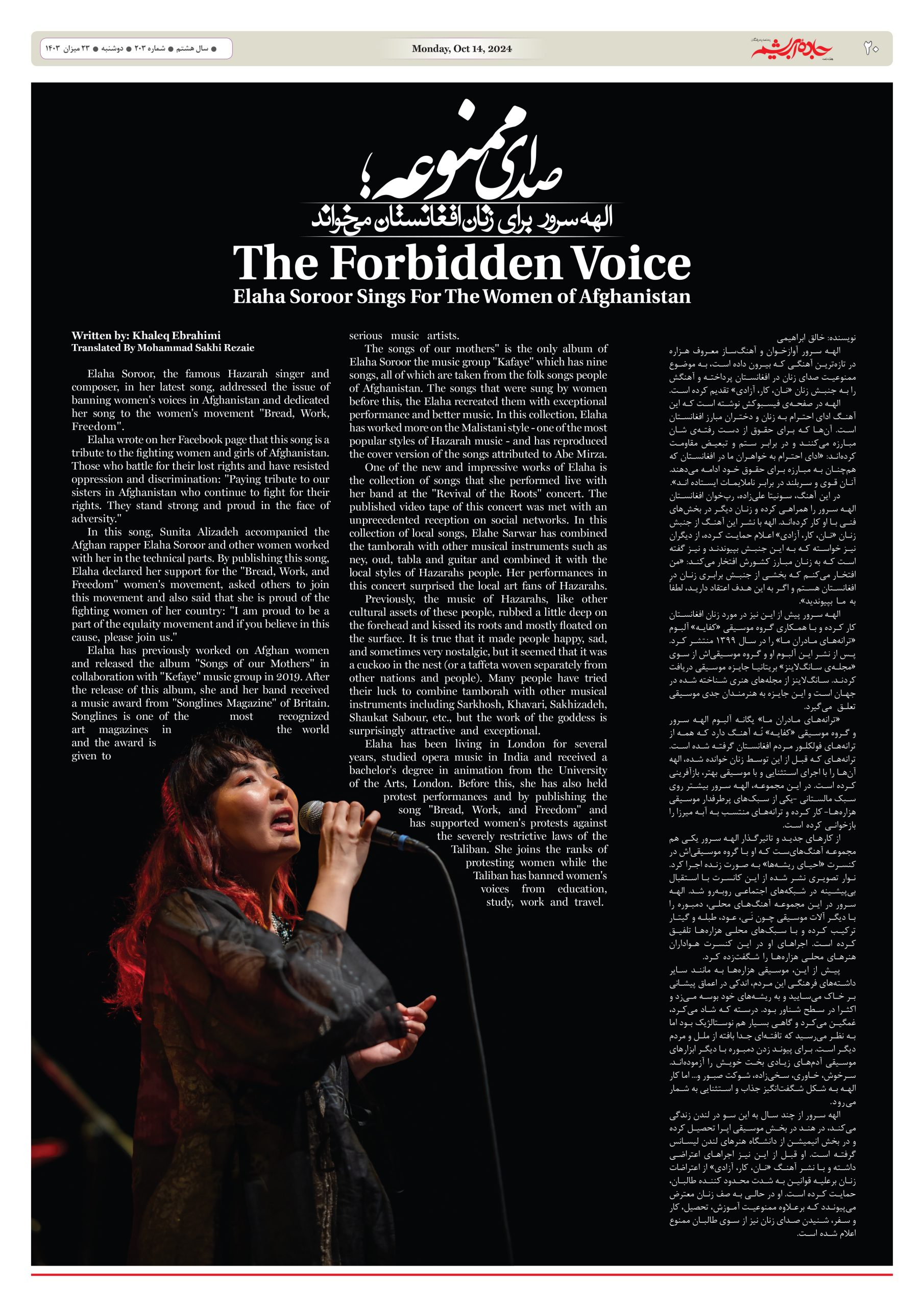 Elaha Soroor: According to my research, there is no difference between “Bolbi” and “Dido” and the name of this style has only changed in different regions of Hazarejat. Of course, I am happy that my interpretation of this “Dido” has created a discussion. I hope experts will publish their research and findings in this regard.
Elaha Soroor: According to my research, there is no difference between “Bolbi” and “Dido” and the name of this style has only changed in different regions of Hazarejat. Of course, I am happy that my interpretation of this “Dido” has created a discussion. I hope experts will publish their research and findings in this regard.
Silk Way Weekly: The team that performed the “Revival of the Roots” album with you, how familiar were/are they with Hazara folklore music and literature, and how necessary do you feel your colleagues should be familiar with Hazara music?
Elaha Soroor: I am very sensitive and it is important in choosing a colleague. Not only to understand each other musically, but also to have commonalities in terms of political and social thinking. Dr. Mehdi Aminian is a journalist and music researcher. Previously, he has collaborated with Hazara and Afghan artists in the field of Afghan folk music and we worked closely together in this collection. Juliana Moderelli, a guitarist who has many years of experience in the field of South Asian music. She has been working with me since ten years ago. Habib Rafiei, a drum player, is a young artist who plays an important role in this collection. Avin Ahmadi, an oud player and a music student at one of the prestigious universities in Austria, had a beautiful collaboration with us. Haidar Khan, a tabla player and music professor at the university, also played a brilliant role in this series.
Silk Way Weekly: Couplets and local songs of the Hazara people are sung with tamborah and Hazara girls and women also sing them without instruments. In the album ” Our Mothers’ Songs” and “Revival of the Roots”, how successful have you been in performing these sounds as they are?
Elaha Soroor: I never tried to play the tunes as I heard them. I hate this job. Artificial intelligence does this very well. I’m glad I’m not a robot. I prefer to understand folk works and arrange and perform them in my own way.
Silk Way Weekly: What is the capacity of Hazara people folk music to be integrated with modern music, especially music that is popular in the West?
Elaha Soroor: Every music has the ability to be combined; It doesn’t matter if it comes from the East or the West, and it depends on the creativity of the artist. Currently, African music is the source and inspiration of many famous and high-profile works in the Western music market. According to a report I read, about 120,000 songs are officially released every day from reputable platforms worldwide. Afghan music is only a drop in this vast sea and only with creativity and integration can it be more prominent in the global market. When a swimmer enters the water, his body naturally adapts to the temperature of the water, and if he does not swim, he will drown. Native music can be preserved as it is only in its birthplace. Any performance and composition of it outside of its birthplace is undoubtedly a fusion. Man cannot stop the influence of his surroundings.
Silk Way Weekly: Hazaras have experienced horrific massacres and genocide. How much have these pains and sufferings and moans been shouted from your throat? We remember that you had words about this in the introduction of the album “Revival of the Roots”.
Elaha Soroor: Yes, it is very important to always talk about the topics that are important to us in the internet space, etc., so that we don’t get lost in the storm of algorithms and information that is published from all over the world. As a Hazara, I have been directly affected by ethnic prejudice and the trauma of the massacre. When I comment on this, I am actually talking about my lived experience.
Silk Way Weekly: Another thing that is not unrelated to our work in this case is the presence of women’s suffering and the presence of the three-year struggle of Afghan women in your work. “Bread, work, and freedom” is one of the slogans of Afghan protesting women and girls. You made a song with this slogan. Would you talk more about this?
Elaha Soroor: The song “bread, work, and freedom!” It is a tribute to my sisters in Afghanistan who stand proudly and strong against the worst form of patriarchy, which is the Taliban, and fight for their rights. In this song, Afghan artists; People like Sunita Alizadeh, a rapper and social activist; Asif Karimi, Damboreh Nawaz; Ramesh Karizi, Dholak Nawaz and my other colleagues who all live in England have collaborated and it was made with their collaboration. The video clip was produced by Coffin Film Company, which is a group of Afghan filmmakers in exile in France.
Silk Way Weekly: How much can making the song “bread, work, and freedom” inspires Afghan girls and women so that the years of darkness imposed on them by the Taliban will not be too much difficult for them?
Elaha Soroor: The subject is about a woman who, by understanding the patriarchal system, understanding history and what has been imposed on her, has gained awareness and realized her inner strength. She accepts and loves herself with all her flaws and angles. He considers herself worthy of a humane life.
She no longer submits to coercive laws and continually repeats her demand, which is “bread, work, and freedom” and the right to education. The inner voice that relies on itself, with repetition, for change, turns it into an outer power. In a part of the song, a children’s poem in Pashtu language is used, which refers to the great mother-daughter relationship and that women of every generation play a role in empowering each other. At the end of “Patience” this time is repeated not as a virtue, but as a behavior that is no longer acceptable.
Now that the Taliban is squeezing the people’s throats and introducing new anti-human laws every day, and on the other hand, the Taliban media is brainwashing, it should be added to the number of artworks on human rights in Afghanistan. With this song and future artworks, we want to tell the girls and women of Afghanistan that a woman should consider herself worthy of a humane life and not give in to the Taliban’s laws, which are a symbol of patriarchy. They are not alone and continue to raise their voice and only by repeating the demand can the result be achieved.
Silk Way Weekly: In the end, we would like you to tell us how many years has it been since Elaha was displaced from Kabul?
Elaha Soroor: I have traveled a lot and met different people. Of course, I’m happy, this situation was for me so that my life story doesn’t take place in just one place.
Silk Way Weekly: Is Kabul or London better? Which one has given you more motivation for new things?
Elaha Soroor: We cannot compare Kabul and London; Because they are very different and have their own positive and negative points. Here I can walk around the city with a sense of security, at all hours of the night; But in Kabul, there was a sense of security only at home with my family. For a curious young girl like me, or as my mother called me, “Dido” or a wanderer, Kabul was insecure. She was always worried that something would happen to me.
Fortunately, I was smart; But now her heart is full; Because I have seen the world and I live in a law-abiding land where my basic human rights are protected and respected, both in society and in the country’s constitution. Despite all this, I have a great sadness and that is being away from the arms of my mother and father. My home is where my mother and father are. To get home, sadness makes me think deeper and create art. Indeed, only sadness produces the most beautiful art. I hope one day I can return to Afghanistan and be the person I am today without fear.
Silk Way Weekly: As a final question, I would like to ask, what other business is Elaha busy with in the busy city of London, besides fighting for women’s freedom and artistic works?
Elaha Soroor: I work full time in the field of music; I make music for movies, theater and commercials. I teach music to elementary school children and immigrants. I board the bus, go to Afghan shops and buy nostalgic food. If there is time on the weekend, I clean the house. I have few friends; But lovely ones that I am always looking for an opportunity to see them. I cook for them; For example, I cook bolani with a special recipe that is spicy and combined.
Silk Way Weekly: If there is anything else to say, let us know.
Elaha Soroor: Taliban use force and violence to control; But the people of Afghanistan want mutual acceptance and dialogue. The artistic community of Afghanistan should involve themselves in this cultural war. More should be added to the number of artistic productions with social issues in Afghanistan.


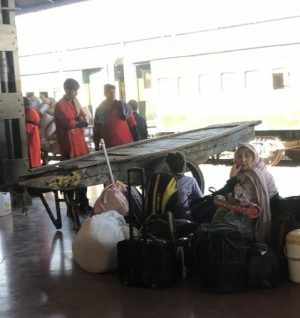
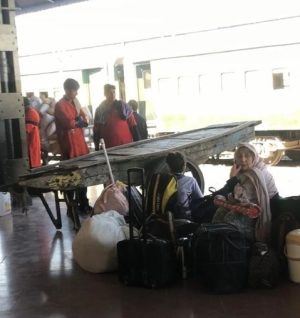
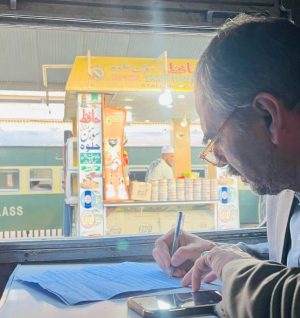
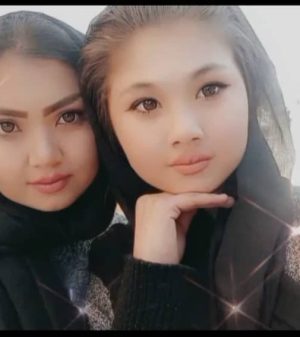
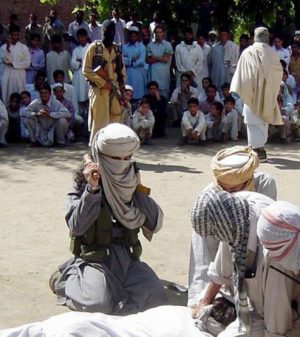
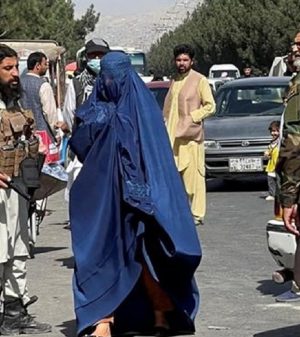
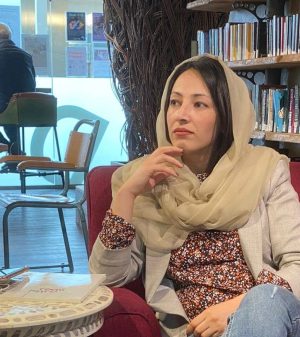
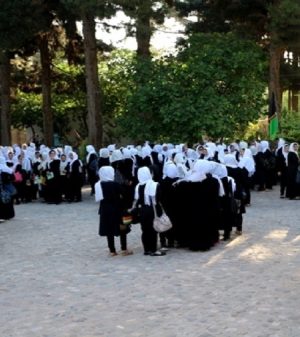
Add Comment